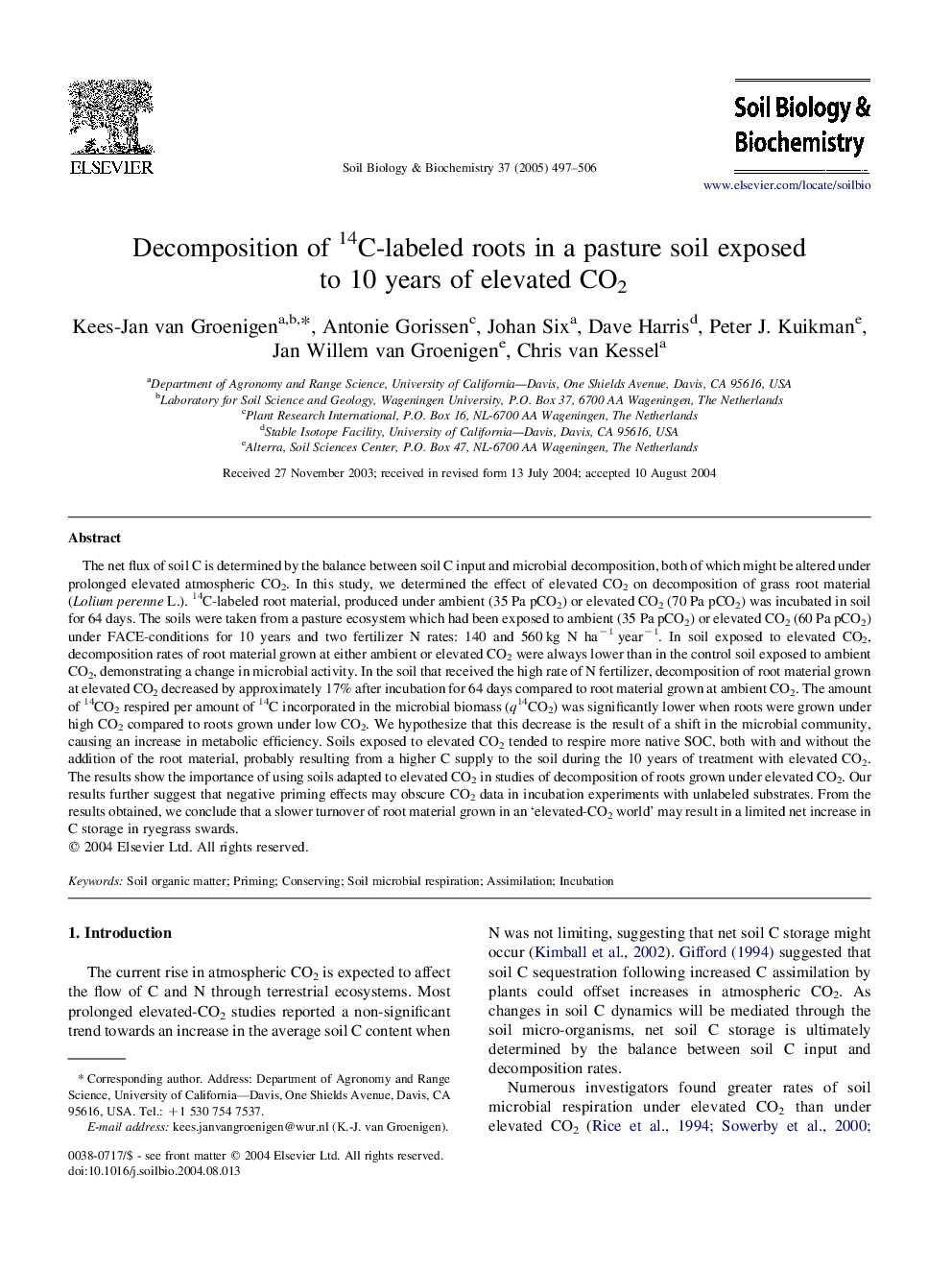| Article ID | Journal | Published Year | Pages | File Type |
|---|---|---|---|---|
| 10846464 | Soil Biology and Biochemistry | 2005 | 10 Pages |
Abstract
The net flux of soil C is determined by the balance between soil C input and microbial decomposition, both of which might be altered under prolonged elevated atmospheric CO2. In this study, we determined the effect of elevated CO2 on decomposition of grass root material (Lolium perenne L.). 14C-labeled root material, produced under ambient (35Â Pa pCO2) or elevated CO2 (70Â Pa pCO2) was incubated in soil for 64 days. The soils were taken from a pasture ecosystem which had been exposed to ambient (35Â Pa pCO2) or elevated CO2 (60Â Pa pCO2) under FACE-conditions for 10 years and two fertilizer N rates: 140 and 560Â kg N haâ1Â yearâ1. In soil exposed to elevated CO2, decomposition rates of root material grown at either ambient or elevated CO2 were always lower than in the control soil exposed to ambient CO2, demonstrating a change in microbial activity. In the soil that received the high rate of N fertilizer, decomposition of root material grown at elevated CO2 decreased by approximately 17% after incubation for 64 days compared to root material grown at ambient CO2. The amount of 14CO2 respired per amount of 14C incorporated in the microbial biomass (q14CO2) was significantly lower when roots were grown under high CO2 compared to roots grown under low CO2. We hypothesize that this decrease is the result of a shift in the microbial community, causing an increase in metabolic efficiency. Soils exposed to elevated CO2 tended to respire more native SOC, both with and without the addition of the root material, probably resulting from a higher C supply to the soil during the 10 years of treatment with elevated CO2. The results show the importance of using soils adapted to elevated CO2 in studies of decomposition of roots grown under elevated CO2. Our results further suggest that negative priming effects may obscure CO2 data in incubation experiments with unlabeled substrates. From the results obtained, we conclude that a slower turnover of root material grown in an 'elevated-CO2 world' may result in a limited net increase in C storage in ryegrass swards.
Related Topics
Life Sciences
Agricultural and Biological Sciences
Soil Science
Authors
Kees-Jan van Groenigen, Antonie Gorissen, Johan Six, Dave Harris, Peter J. Kuikman, Jan Willem van Groenigen, Chris van Kessel,
